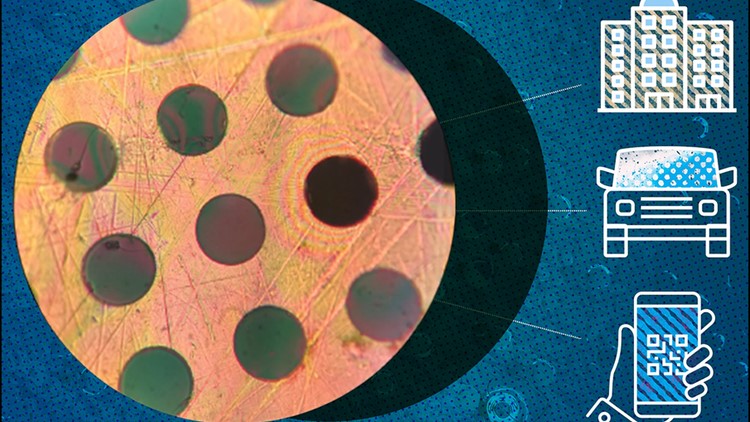CAMBRIDGE, Mass. — MIT chemical engineers have created a new material stronger than steel, as light as plastic and seals tight enough that even gas can't get through.
The material could be used for building and manufacturing processes in place of steel parts.
The engineers used a new polymerization process that easily creates the material in large quantities, MIT said in a new report. All other polymers form one-dimensionally in a spaghetti-like chain, while the new material is two-dimensional and self-assembles into sheets. Until now, scientists "believed it was impossible to induce polymers to form 2D sheets."
What does this mean?
The material created in a sheet-like form can be used as a lightweight, long-lasting coating for car parts, cell phones or even building material, Michael Strano, the Carbon P. Dubbs Professor of Chemical Engineering at MIT and the senior author of the new study, said.
With this new invention, something as lightweight as plastic can support a bridge.
"We don’t usually think of plastics as being something that you could use to support a building, but with this material, you can enable new things," he said in a statement. "It has very unusual properties and we’re very excited about that."
Two patents for the process used to generate the material have been filed.
Understanding Polymers
All plastics are made up of polymers – chains of building blocks called monomers.
"Once formed, polymers can be shaped into three-dimensional objects, such as water bottles, using injection molding," the report says.
Thought to be impossible, Strano and his colleagues were able to generate two-dimensional sheets called a polyaramide forming disks that stack on top of each other and are held together by hydrogen bonds between the layers. Thus, making the structure extremely stable and strong.
Stronger than steel?
While the material is created in sheets, researchers found that the measure of how much force it could take to deform the material is "somewhere between four and six times greater than that of bulletproof glass," the report says. Researchers also learned that it's twice as strong as steel. By that, they mean it takes a lot of force to break the material. And it's only about one-sixth the density of steel.
The engineers also learned that the material is impermeable to gases – meaning it cannot get through. Other polymers are made with gaps that allow gases to seep through, while this material is made from monomers that lock together like seamless Tetris blocks and molecules cannot get between them.
“This could allow us to create ultrathin coatings that can completely prevent water or gases from getting through,” Strano says. “This kind of barrier coating could be used to protect metal in cars and other vehicles, or steel structures.”



